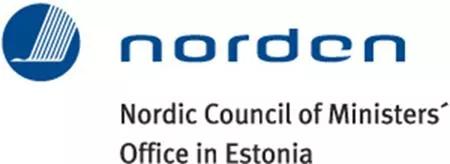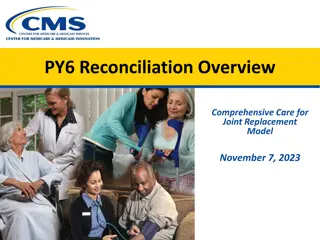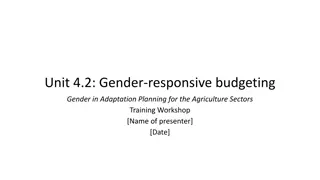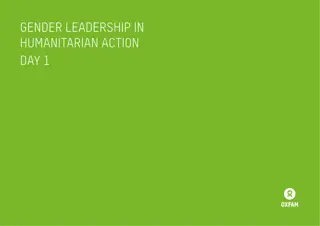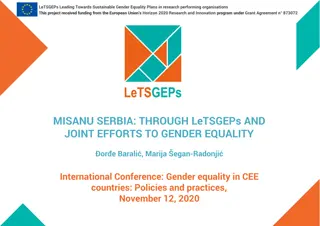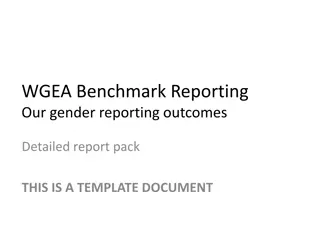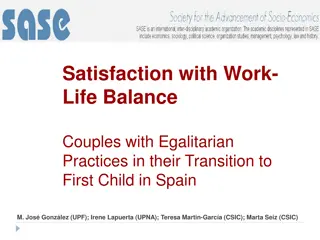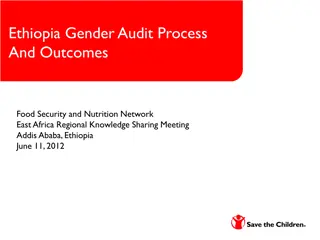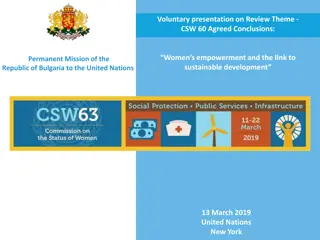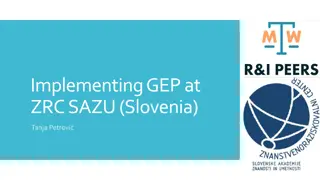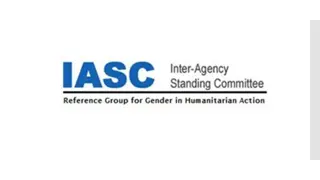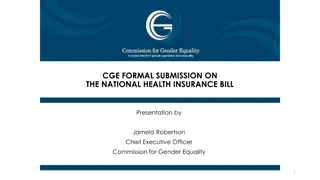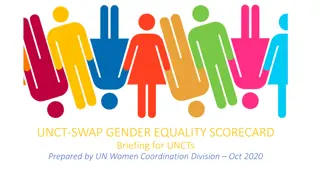Achieving Work-Life Balance and Gender Equality through Reconciliation Practices
EIGE's work on good practices in the area of reconciliation focuses on identifying and promoting strategies to challenge gender stereotypes, improve childcare services, involve men in caregiving, and ensure economic stability for women in the labor market. The key features to move forward include engaging stakeholders, enhancing networking, targeting SMEs, and investing in awareness-raising initiatives and training programs.
Download Presentation

Please find below an Image/Link to download the presentation.
The content on the website is provided AS IS for your information and personal use only. It may not be sold, licensed, or shared on other websites without obtaining consent from the author. Download presentation by click this link. If you encounter any issues during the download, it is possible that the publisher has removed the file from their server.
E N D
Presentation Transcript
EIGEs work on Good Practices in the area of Reconciliation 11th LPR Network seminar Tallinn, 18-19 September 2014
ACHIEVEMENTS 1. 12 good practices 2. Policy review (EU and national) 3. Methodological approach to identify and assess good practices on reconciliation 4. Focus on benchmarking, awareness-raising and self-regulation 5. Literature review 6. 3 Factsheets on policies, good practices and positive flexibility
MAIN CHALLENGES AND GAPS 1. Advancing the availability, affordability and quality of child care and other care services/facilities Designing policies and strategies to challenge traditional gender stereotypes Involving men in care and other unpaid work, with scope for improving EU regulations governing paternity leave and in extending the rights of fathers. Ensuring that the economic crisis does not compromise the progress made in women s participation in the labour market, the trend towards the dual-earner model and of men s involvement in family/care responsibilities. Increasing awareness and implementation of reconciliation measures in national and EU policy levels. Ensuring that flexible working arrangement generate positive outcomes in terms of reconciliation and gender equality Increasing the involvement of all relevant stakeholders in the implementation of reconciliation policies. Encouraging the dissemination of good practices on reconciliation across different national contexts 2. 3. 4. 5. 6. 7. 8.
KEY FEATURES TO MOVE FORWARD 1. The relevance of social partners and multiple stakeholders; 2. The importance of promoting public and private networking; 3. The importance of involving and targeting SMEs in reconciliation projects. 4. The need to improve the availability of public resources and to build self-financing wherever possible. 5. The need to invest in well-targeted awareness-raising initiatives. 6. 7. The need to improve monitoring and evaluation; The importance of carrying out researches and study and collect sex disaggregated data, as baseline information for policies. 8. The relevance of learning from good experiences and transferring practices to change working culture. 9. The importance of investing in training, counselling and coaching to strengthen the potential for change in traditional assumptions, attitudes and behaviours. 10. The need to target men in all reconciliation projects and initiatives, as part of a strategic orientation towards gender equality.
Self-regulation Parental leave company workshops Austria Project More Germany 24-hour Service Childcare Denmark Halcom Family-friendly Enterprise Slovenia Awareness-raising Four Walls, Four Hands , Campaign Austria Managing Reconciliation of Work and Family Germany A Hug from Daddy Denmark Sharing Work-life Responsibilities (NISTA) Malta Occupation Dad I like it Poland Benchmarking Family/Employee-Friendly Company Competition Estonia Family Audit Certification Italy Equality Mark Malta Think Act Report UK




